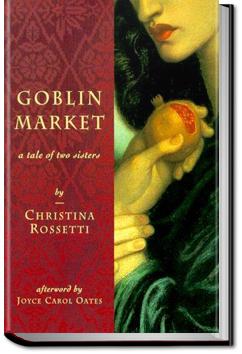

While Lizzie runs away to prevent herself from looking at the goblin men or sampling their fruit, Laura finds the spectacle of their bodies-which resemble animals-irresistible. Their sales pitch is effective when Laura and Lizzie hear it, they crouch close to the ground and hide themselves not just to avoid looking at the dangerous goblin men, but seemingly also to hide the evidence of their sexual arousal: their blushes and “tingling cheeks and finger tips.” The goblins are an object of curiosity and desire, and their exotic fruit functions as a metaphor for forbidden desires that cause young women to transgress the boundaries of acceptable feminine behavior at the time. The goblins seem to exist solely in order to tempt young women to purchase their delicious but poisonous fruits, which they describe in terms that are unmistakably erotic: from “Plump unpecked cherries”-simultaneously suggestive of virginity and sexual ripeness-to voluptuous “Bloom-down-cheeked peaches” that invite the buyer to touch as well as taste. Opening her poem with the goblin men’s seductive cry, Rossetti immediately establishes them as figures symbolic of sexual temptation. Rossetti thus seems to argue, against the dominant view of her time, that fallenness is not a permanent state and that fallen women can be saved and reintegrated into their communities through the compassion and support of their unfallen sisters.

In contrast to many other representations of fallen woman in nineteenth-century art and literature, Rossetti’s fallen woman, Laura, never loses her purity and is ultimately saved through the self-sacrificing love of her sister.

While it is tempting to read “Goblin Market” as a warning to women to avoid sexual temptation, Rossetti’s allegory also lends itself to more complex readings. Rossetti’s fairytale-like poem focuses on two sisters, Laura and Lizzie, one of whom succumbs to sexual temptation with near-fatal consequences, while the other withstands temptation and saves her fallen sister. Writing in the mid-nineteenth century, at a time of strict societal expectations regarding women’s behavior, Christina Rossetti was intensely interested in the plight of fallen women-those women who, by society’s standards, were perceived to have given in to the temptation of engaging in sex outside of marriage and who were subsequently shunned. “Goblin Market” is a complex poetic allegory about sexual temptation.


 0 kommentar(er)
0 kommentar(er)
